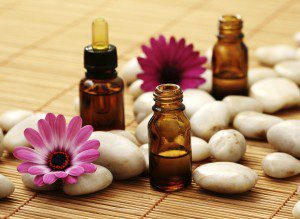By Casie Terry
Guest Writer for Wake Up World
Aromatherapy suggests that you can extract volatile compounds from plants (known as aromatic compounds) and deliver them to the body via vapor or a topical solution for the purpose of altering mood, cognitive function or health.
Essential oils were traditionally used as antiseptics to prevent infections. But over time, the focus on the benefits of aromatics has shifted from their uses as topical treatments to their influences on the brain. It is believed that aromatic compounds are absorbed through the olfactory system and interact with the brain’s limbic system, creating a minor and temporary change in brain chemistry.
[pro_ad_display_adzone id=”110028″]
How does this happen?
Aromatics is one of the more fascinating areas of organic chemistry. Before studying aromatic compounds myself, it was somewhat difficult for me to imagine that aromas each have a chemical structure all their own: One of the more distinct aromas from a pineapple is created by the presence of methyl butyrate. Roses smell lovely thanks to the compound geranyl acetate. The refreshing scent of lemongrass is due to the chemical compound citronellal. It’s all rather incredible, isn’t it?
Understanding aromatic compounds makes it easier to see why aromatherapy is such a perfect complement to other wellness strategies. By using certain aromas in conjunction with activities such as reading, massage therapy or meditation, aromatic compounds can actually influence your brain’s chemistry to heighten your mood or sharpen your mind in a way that’s safe and all natural.
Here’s a few popular aromatics and what they can do for you
1. Rosemary: Rosemary is thought to stimulate the brain and improve mental performance.
2. Peppermint: Peppermint oils are known to relieve mental fatigue, enhance alertness and enhance memory.
3. Lemon: The uplifting aroma of lemon has been known to enhance mental clarity and reduce stress and depression.
4. Eucalyptus: The essential oil of eucalyptus is most commonly used to open the sinuses and bronchial passages. It is also used to relieve headaches and mental fatigue.
5. Lavender: One of the most widely used essential oils, lavender is uplifting and relaxing.
6. Jasmine: Jasmine is used to fight stress and anxiety and as an antidepressant.
7. Thyme: The essential oil of thyme may help improve memory and concentration. It has also been know to relax the nervous system.
8. Sandalwood: Sandalwood is often used to calm the nerves and induce relaxation. It has very spiritually warming properties.
It should be noted that the quality of an essential oil is important for its efficacy. Different brands use different aromatic concentrations and not every brand places an emphasis on organic growing practices. While you can find some great aromatic products at health food stores and organic markets, we know and trust our friends over at Mountain Rose Herbs. They grow all of their own herbs for their aromatic products using organic and GMO-free practices and they offer over 100 different oils. You can also find some great organic aromatherapy kits online such as this one from Edens Garden.
[pro_ad_display_adzone id=”110027″]







